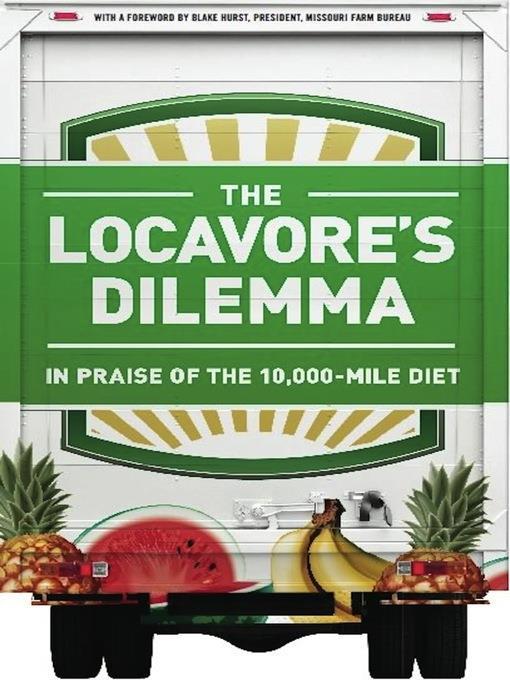
The Locavore's Dilemma
In Praise of the 10,000-mile Diet
کتاب های مرتبط
- اطلاعات
- نقد و بررسی
- دیدگاه کاربران
نقد و بررسی

April 30, 2012
A Canadian academic couple attempts a soup-to-nuts debunking of the local slow food movement (“locavorism”) in this daring, bare-knuckled, frequently sarcastic defense of the status quo in Western industrial agribusiness. From the point of view of the well-off, well-fed North American who does not have to toil much of the day for his subsistence, what’s not to praise in the West’s ability to provide the world with cheap, fast, uniform, reliable, bug-resistant, vitamin-enhanced food? After all, we’ve grown literally in stature and size thanks to the Western diet and largely eliminated famine (on our side of the world, anyway); the free flow of food across world borders keeps peace and allows most of us (who can pay) to consume all kinds of unseasonable foods year-round, requiring only a fraction of the fuel needed to keep the local energy-guzzling greenhouses running, they write. Desrochers, geography professor at the University of Toronto, and Shimizu, a public policy scholar trained in Japan, cite impressive experts, from Aristotle to the Hudson Institute’s Dennis Avery, to address the “myths” in what they consider the romantic, risible, irrational movement to patronize one’s local organic farmer: indeed, they argue, urbanization has brought prosperity; globalization wields peace and security; “food miles” is a joke; packaged food is safer than handling it at home; and the notion of peak oil (someday running out of fuel with which to haul all that food across the world) is an “untenable proposition,” since we’ll just go back to coal. A provocative take, to be sure, and one that will invite the ire of the 99%.

May 1, 2012
Desrochers (Geography/Univ. of Toronto) and Shimizu formulate counterarguments to claims made by proponents of locavorism. The authors state that the movement does not nurture social capital because economic well-being is correlated to more trade and specialized jobs. It also does not offer a free economic lunch because the more people spend on one local good, the less money they have to spend on another local product. In response to claims about the environmental benefits of locavorism, they claim that food transportation has negligible environmental damage. They also believe that larger food corporations are better equipped to handle food safety than smaller, local operations. Moreover, the issue of food shortage has only been effectively addressed by food imported from other countries. While some of the authors' points have merit, they ignore some widely known facts about food. For example, Desrochers and Shimizu note that we are bigger and live longer compared to our ancestors due to advancements in food. While that is true, the authors ignore the fact that the average American's health has declined in the past decade, partly due to increases in food-related diseases such as diabetes. The authors also praise the variety of food available in U.S. supermarkets, assuming that variety exists everywhere, not just in middle- and upper-class neighborhoods. (For a solid discussion of the lack of variety in lower-class areas, see Maggie Anderson and Ted Gregory's Our Black Year.) In the chapter about food safety, Desrochers and Shimizu list bacterial outbreaks that occurred in local fruit and vegetable farms but do not mention the recent problems in large meat and poultry companies. In 2011, there were three outbreaks and recalls that originated from Dole, Tyson Farms and Jennie-O factories. The authors' willingness to ignore certain facts and events that do not align with their argument casts doubt on the book's validity as a source of information. Not recommended for readers looking to become more informed about this issue; suitable for those who already align with the authors' viewpoint.
COPYRIGHT(2012) Kirkus Reviews, ALL RIGHTS RESERVED.

























دیدگاه کاربران